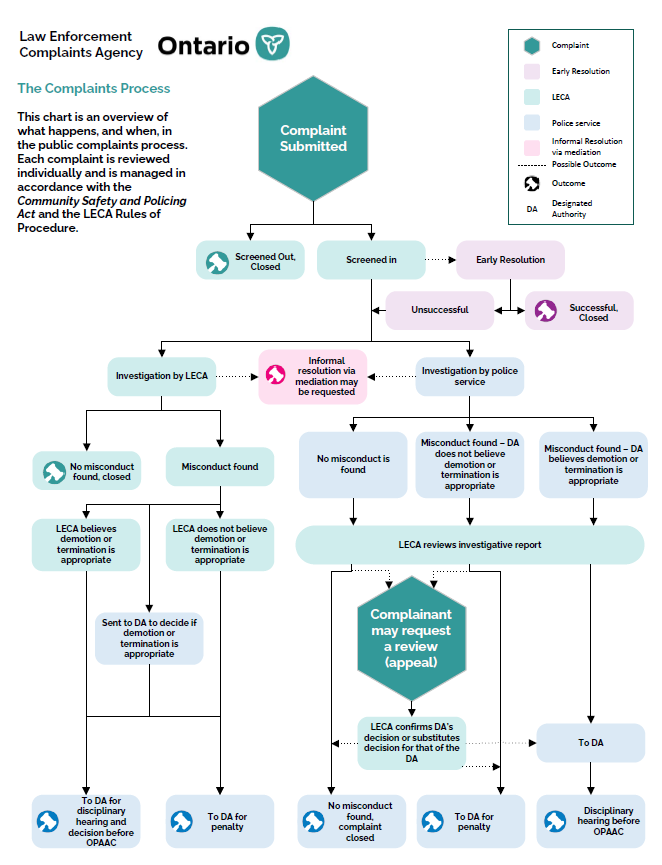Belleville Police Service takes great pride in serving our community and we are committed to transparency and maintaining community confidence when dealing with any possible officer misconduct. Our officers are governed by the Community Safety and Policing Act (CSPA). The Act defines the role of a police officer and outlines how they are expected to conduct themselves. Our officers are held to a high standard of conduct and officers can face formal discipline if they disobey the Act.
This means officers:
If an officer is charged, the Chief of Police has the authority to suspend the officer with pay while the investigation takes place, in certain circumstances. Please note that Criminal Code convictions don’t determine whether an officer’s employment is terminated; it’s the CSPA process that has the potential to affect an officer’s employment status.
You can also visit Belleville Police Service to make a complaint in person, within six months of the alleged wrongdoing. It should be in writing and must be signed by the person directly affected. All complaints made about the conduct of an officer goes to LECA. They will review the complaint and decide how to proceed. The police service in question, another police service or LECA themselves may investigate the complaint. The outcomes of all complaints are reviewed by LECA. Following the investigation of a complaint, and if a hearing is ordered to take place, the hearing is aligned with the Community Safety and Policing Act.
